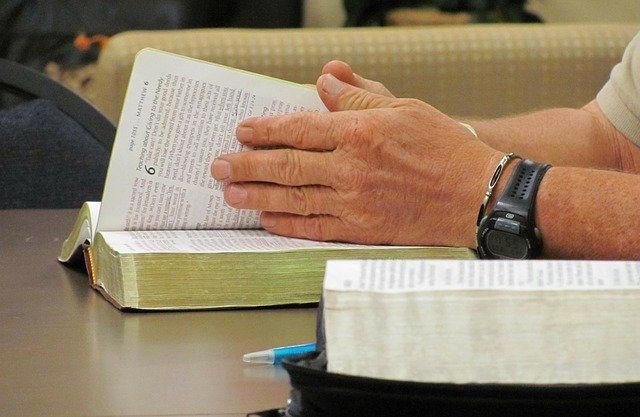
John and Mary were twenty-five years old when they were married. That was twenty-five years ago and they have just celebrated their silver wedding anniversary with their two children, twenty-three-year-old Jack, and Martha who is twenty-one.
In many respects the celebrations were a happy occasion with relatives and close friends from their church coming for a garden barbecue meal. However, before the guests arrived there had been some problems in the family which somewhat marred the occasion.
Martha had insisted on bringing her boyfriend, with whom she has been living since she graduated from university a year ago. He is a nice enough fellow, but John and Mary, being believers and active church members, strongly objected to him and Martha living together without being married. ‘You just do not understand,’ Martha had protested when confronted with her parents’ objections. ‘Everybody does it these days and, besides, how can anyone enter into a lifelong marriage relationship until they have lived with the person and know what they really are like? You are just not with it, Mum and Dad.’

As for Jack, he did not have a steady girlfriend, but it was not difficult to tell what sort of lifestyle he was leading. His hair was cut to a ‘number one all over’ and he had a ring in each ear and another one in his nose. His school results had not been good enough for him to go to university, and he had made it clear that he had no interest in studying anyway. Neither was he interested in work. Why work when you can get a regular income from the government? His mates had lots of experience with the ‘system’ and knew how to get the maximum out of it. Since Jack still lived at home and refused to contribute in any way to the family expenses there was no real need for him to work. However, his parents had asked him, just for this occasion and as a special favour, to remove the rings in his ears and nose and put on some decent clothes (there was nothing they could do about the haircut, apart from asking him to wear a wig, and they knew he would certainly not be willing to do that!).
It was the evident rebellion of their children against the religious upbringing which they had received which embarrassed John and Mary and they both felt it very keenly when the friends from the church arrived for the silver wedding celebrations. The problem was that they had felt obliged to invite the pastor and some of the church elders and wondered how they would react to the attitude of Jack and Martha, whom they had not seen for some time. The church leaders were, of course, aware of the situation and on more than one occasion they had come to talk with John and Mary and to ‘counsel them’, as they had put it.

The ‘counsel’ they had received was what really troubled John and Mary. Although no direct accusations were made, it was clear from what had been said that the church leaders were of the opinion that if children are brought up correctly by their parents in the things of the Lord, then they will not go astray, as Jack and Martha appeared to be doing. How often they had reminded the troubled parents of what the Scriptures say in Proverbs 22:6: ‘Train up a child in the way he should go: and when he is old, he will not depart from it.’ Other people in the church had wanted to ‘share with them’ their great belief in what the Scriptures say, ‘Spare the rod, and spoil the child’, but they had never been able to find that in their Bible.
In one way or another they had often been reminded both by church leaders and fellow-members that if their children were rebelling against the gospel it was because they had not been brought up properly. They had even been told, in a guarded sort of way, that they should not think about becoming involved in any leadership of the church since it was inconceivable that anyone who could not bring up their children correctly should become involved in teaching others.
The situation had become almost unbearable to John and Mary and they had often spoken about it together. Where had they gone wrong, if it was really their fault as their friends in the church seemed to suggest? As they looked back over their twenty-five years together they could certainly pick out things which they would change if they had the opportunity of doing so, but were these things the real cause of their children’s rebellion? They had gone back to the Scriptures for themselves to try to find out what they had to say on the matter and if there was anything they could do, even at this late stage, to change things. This exercise had been fruitful, as far as John and Mary were concerned, but when they mentioned their findings to the church elders they did not get a very sympathetic hearing and were told that while they agreed that a Christian upbringing did not guarantee that children of believers would themselves become true believers, the way Jack and Martha were rebelling was undoubtedly the consequence of errors in their upbringing, even though the troubled parents had regularly brought them to church and Sunday school, encouraged them to become involved in the church youth activities and regularly read the Scriptures with them at home.
The attitude of the church leaders and their lack of sympathy and understanding of the problem sent John and Mary back to the Scriptures again. They went right back to creation and to the first family. Adam and Eve had experienced close communion with God in the Garden of Eden, yet at least one of their children had gone very much astray and turned out to be a murderer. They also spent some time studying the story of Eli, the saintly priest of God in 1 Samuel 2, and discovered that he had two sons, Hophni and Phinehas, who’were corrupt and did not know the Lord’ (v.12). They noted that Eli was reprimanded by the Lord and eventually punished (the church elders had also pointed this out to them) but when they looked closer, they discovered that this was because Eli had been foolish enough to go along with the conduct of his sons to the extent that the Lord had said to him in verse 29, ‘Why do you kick at my sacrifice and my offering which I have commanded in my dwelling place, and honour your sons more than me, to make yourselves fat with the best of all the offerings of Israel my people?’ They were also surprised to read in 1 Samuel 8 that even Samuel, who had been brought up in the temple, had two sons who ‘did not walk in his ways’ and it was this that led Israel to ask for a king. On the other hand, they noted that Timothy, in the New Testament, seems to have profited from a godly upbringing received from his mother Eunice and grandmother Lois (2 Timothy 1:5). They had concluded from this that whilst it is the responsibility of all believing parents to carefully and clearly instruct their children in the things of God, this in itself is certainly not a guarantee that they will become believers and not rebel against the gospel. There must, therefore, be something more to it, so they continued to study the Scriptures.
It was during a time when they were feeling particularly depressed that they came across the passage in Jeremiah 17:9: ‘The heart is deceitful above all things, and desperately wicked; who can know it?’ A reference in the margin of their Bible led them to other passages, such as Ecclesiastes 9:3: ‘Truly the hearts of the sons of men are full of evil; madness is in their hearts while they live’; and Mark 7:21-23: ‘From within, out of the heart of men, proceed evil thoughts, adulteries, fornications, murders, thefts, covetousness, wickedness, deceit, lewdness, an evil eye, blasphemy, pride, foolishness. All these evil things come from within and defile a man.’ Suddenly it dawned on them that the reason their children had chosen their sinful way of life was because they were sinners by birth and by nature. They had always been told (and they had believed it) that it was because they had ‘got into the wrong company’ and their parents had not done enough to discourage it. Now they understood that they were simply following the bent of their corrupt sinful nature and would continue to do so unless something extraordinary happened. John remembered that when he had visited some families whose relatives were in prison they had all told him the same thing: they had ‘got in with bad company’. He now understood that we choose our friends and companions according to the bent of our nature. It was not sufficient to blame the company their children were keeping (although that may not have helped), the problem came from within: from their sinful unregenerate natures.
They were still puzzling over this discovery when they came across a passage in Romans 9 which speaks about predestination (a word which they did not like to use) and which they had never been encouraged to take at face value. They had been told that the apostle Paul was here talking about God’s foreknowledge of what would happen in the future and not about his sovereignty in election. As they read and reread the passage they began to realize that God is not obliged to save anyone, since all are guilty sinners, but in sovereign grace he has chosen to redeem some. One thing they noted, and which struck them very forcibly, was that Isaac had been chosen, and not Ishmael, and they were both sons of the same father. They then noted that God had chosen Jacob, and not Esau, and they were twins. Not only that, it is clearly stated that God’s choice took place even before they were born. It was this statement in verse 11 which once and for all changed their way of looking at things: ‘the children not yet being born, nor having done any good or evil, that the purpose of God according to election might stand, not of works but of him who calls’.
As they continued to study the Scriptures for themselves they came across many other passages which taught the same thing, such as Ephesians 1, 2 Thessalonians 2:13-14 and many more. It then dawned on them that the salvation of their children did not depend on their upbringing, but on the sovereign grace of God in Christ, although it is the responsibility of parents to clearly teach their children the things of God.
This helped to lift from their shoulders the burden of guilt which they had been bearing; but not entirely, for they also discovered in Scripture that the responsibility of parents is not only to instruct their children in the Scriptures, but also to live an upright godly life before them. When they looked back over their twenty-five years of marriage, and twenty-three years of parenthood, they realized that this had not always been the case. They also realized that since salvation depended on a sovereign work of God they should not despair, but pray sincerely that God would be pleased to save their children. Had he not done so for them, in sovereign grace and mercy, even though they had not at the time realized all the implications of what he had done for them?
Things went reasonably well the night of their silver wedding anniversary celebration, even though Jack had left early to meet up with his mates. Through their study of Scripture they had learned that nothing is impossible with God and he will continue to be gracious in the working out of his sovereign plan and purpose. He could save their children, and they determined to pray more diligently to that end.




